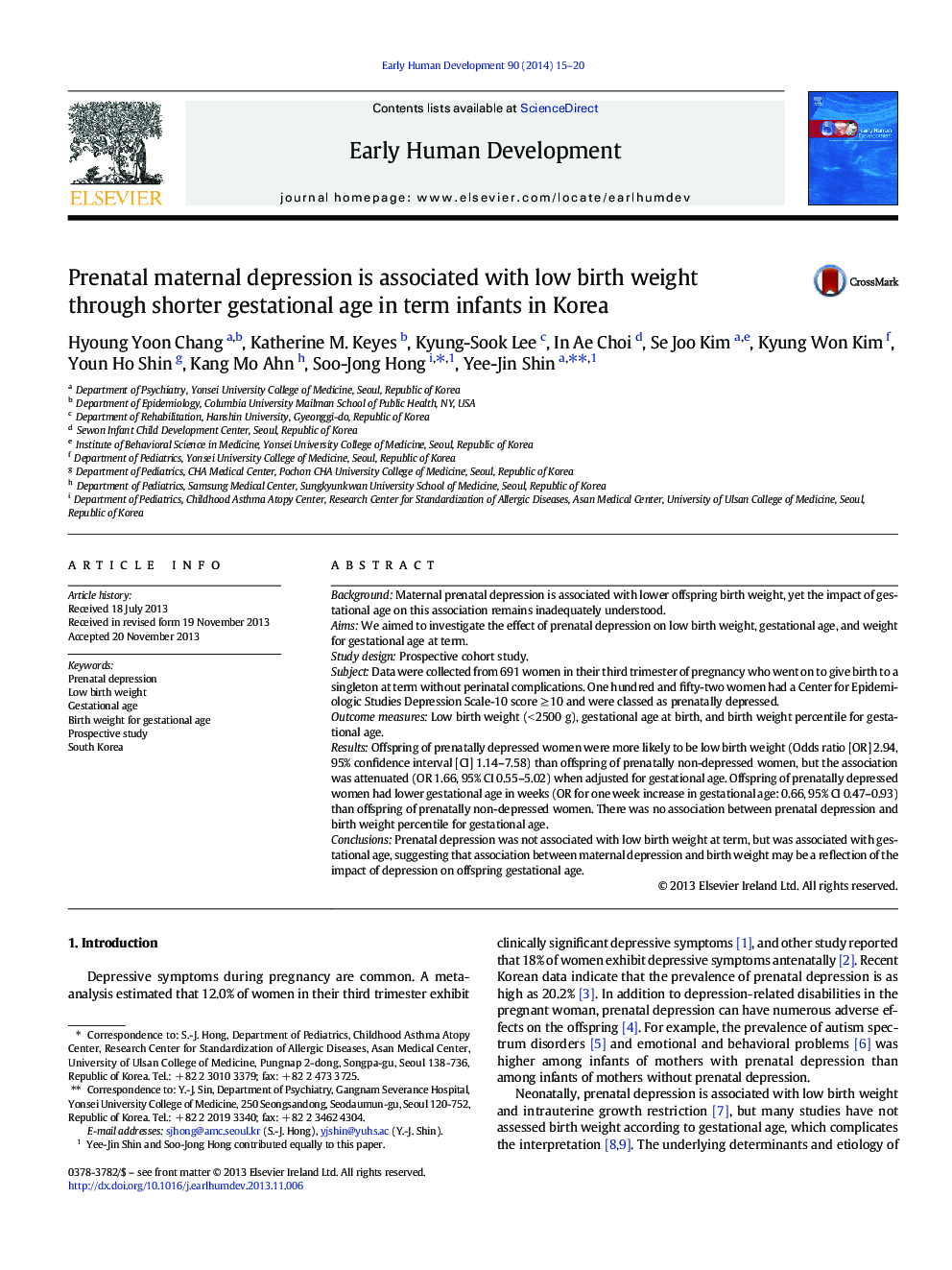| Article ID | Journal | Published Year | Pages | File Type |
|---|---|---|---|---|
| 3918074 | Early Human Development | 2014 | 6 Pages |
BackgroundMaternal prenatal depression is associated with lower offspring birth weight, yet the impact of gestational age on this association remains inadequately understood.AimsWe aimed to investigate the effect of prenatal depression on low birth weight, gestational age, and weight for gestational age at term.Study designProspective cohort study.SubjectData were collected from 691 women in their third trimester of pregnancy who went on to give birth to a singleton at term without perinatal complications. One hundred and fifty-two women had a Center for Epidemiologic Studies Depression Scale-10 score ≥ 10 and were classed as prenatally depressed.Outcome measuresLow birth weight (< 2500 g), gestational age at birth, and birth weight percentile for gestational age.ResultsOffspring of prenatally depressed women were more likely to be low birth weight (Odds ratio [OR] 2.94, 95% confidence interval [CI] 1.14–7.58) than offspring of prenatally non-depressed women, but the association was attenuated (OR 1.66, 95% CI 0.55–5.02) when adjusted for gestational age. Offspring of prenatally depressed women had lower gestational age in weeks (OR for one week increase in gestational age: 0.66, 95% CI 0.47–0.93) than offspring of prenatally non-depressed women. There was no association between prenatal depression and birth weight percentile for gestational age.ConclusionsPrenatal depression was not associated with low birth weight at term, but was associated with gestational age, suggesting that association between maternal depression and birth weight may be a reflection of the impact of depression on offspring gestational age.
